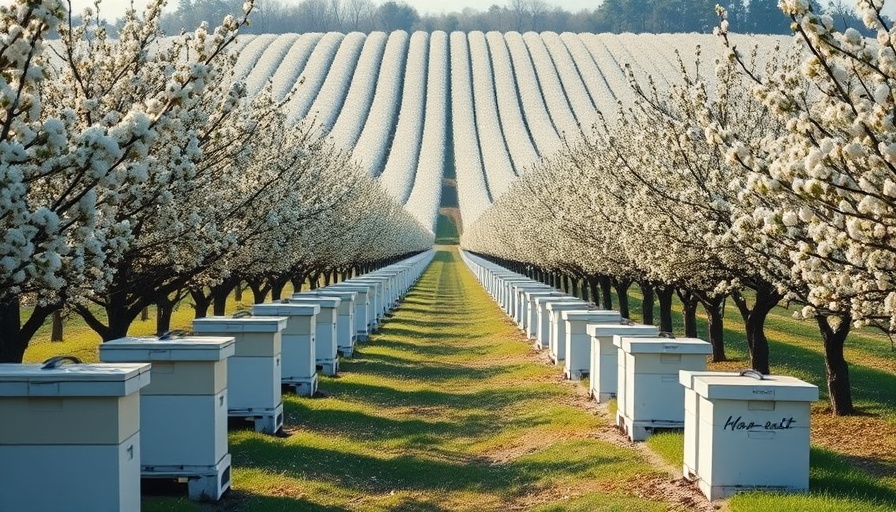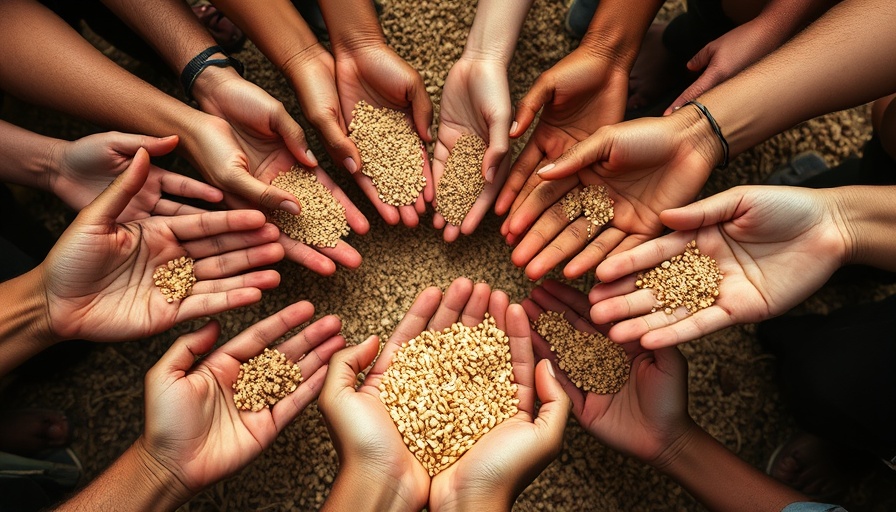
Record Highs: A Pricey Toll on U.S. Honeybee Populations
Honeybee deaths in the United States have surged to shocking levels, with recent figures indicating that commercial beekeepers have lost an average of 62 percent of their colonies this winter. Conducted by Project Apis m., a nonprofit organization focused on pollinator health, this survey captured responses from 702 beekeepers managing around 1.84 million colonies, amounting to about 68 percent of the nation's bee population.
According to the organization, these unprecedented losses have left a profound impact on the beekeeping industry and could threaten the pollination of essential crops across America. "The start of the 2025 almond pollination season was met with unprecedented colony losses," the organization stated. The ramifications of such a decline extend beyond just the beekeeping sector—it’s an issue with significant agricultural implications.
The Economic Impact: Counting the Cost of Colony Losses
The financial blow is staggering, with beekeepers reporting an estimated loss of $224.8 million in direct colony losses, based solely on a conservative replacement cost of $200 per colony. This figure does not account for the additional costs associated with feeding, labor, and treatments necessary for maintaining the health of the colonies.
“What do back-to-back losses mean? We already bought back in. We borrowed from our house, from our retirement, from family,” lamented one anonymous beekeeper. Such testimonies paint a stark picture of the emotional and financial toll these losses exact on those whose livelihoods depend on the health of honeybee populations.
The Growing Crisis and Future Implications
Beekeepers are no strangers to annual losses. However, the current trajectory suggests it may lead to the biggest loss of honeybee colonies in U.S. history. Scott McArt, an associate professor of entomology at Cornell University, commented on the troubling trend: "We have been seeing high losses year after year, but if anything, it's getting worse." This raises concerns not only for beekeepers but for food crops that depend heavily on bee pollination.
As the effects of climate change continue to ripple through ecosystems, the supply of forage for bees is steadily diminishing. Urban expansion, industrial farming practices, and harmful pesticide usage contribute to an environment that makes survival increasingly challenging for honeybees. The potential consequences for the agricultural sector are far-reaching. In some areas, almond orchards reported a shortfall in pollination, leaving questions about the viability of other crops in jeopardy.
Understanding the Need for Immediate Action
The high rates of hive loss are calling for urgent conversations about the necessary steps to protect honeybee populations and, by extension, food security. Engaging stakeholders from both the agricultural and environmental sectors is crucial. Potential solutions might include creating more bee-friendly habitats, implementing better farming practices, and promoting awareness about the importance of pollinators in our food chain.
The continuing decline of honeybee populations is not just an environmental issue—it's a pressing economic challenge that demands collective action. One key area for improvement is addressing the pesticide regulations that have been shown to harm bee populations. Moving towards more sustainable farming practices could play a pivotal role in reversing this worrying trend.
Collective Response to a Growing Threat
This alarming situation serves as a wake-up call for everyone involved in or affected by agriculture. With rising losses year after year, it's imperative that both caretakers and consumers advocate for measures that prioritize bee health. Ground-level engagement, from urban gardens to state and national policy changes, could create a network of support for bees.
Sustaining healthy bee populations is vital, not just for honey production, but for the resilience of our entire food system. Ample community engagement and legislative advocacy can help ensure that beekeeping remains viable and sustainable for future generations.
 Add Row
Add Row  Add
Add 




Write A Comment